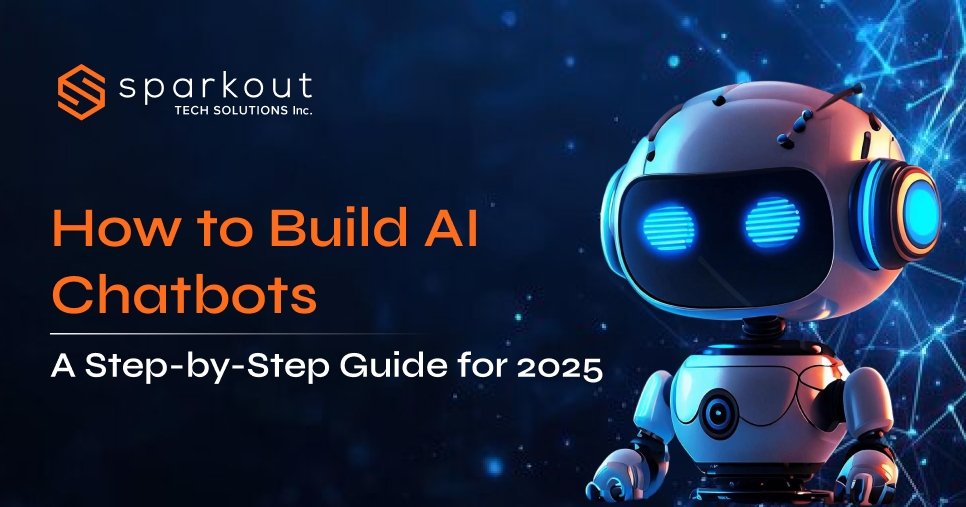Artificial intelligence in mobile apps is revolutionizing the tech world. Machine learning mobile applications make our lives richer and easier by performing human-oriented tasks. No more bumfuzzle on which technology to focus on. Technology has progressed to a point where developers are prickly to take advantage of the latest machine learning and AI technology to develop advanced smartphones.
In this fast-growing tech world, artificial intelligence in mobile apps and machine learning mobile applications have catalyzed a big shift and revolutionized user experiences and app functionalities.
The integration of artificial intelligence in mobile apps serves as the unplumbed tools that developers are now using to unleash the true potential of mobile applications. Here we will demystify the true potential benefits of machine learning and artificial intelligence in mobile apps that every developer can leverage to deliver user-centric applications. Let's take a closer look.
Mobile App Development: Artificial Intelligence (AI) and Machine Learning (ML) Explained
Let's start with the basics. Artificial intelligence, or AI is a branch of computer science that concentrates on utilizing human brilliance and creating machines competent in intelligent manners. In other words, it is about developing programs that can understand, learn, predict, and react like humans in similar situations. Let's move on to machine learning. It is an application of AI that gives systems access to self-learning data without being explicitly programmed to interpret this information.
You might be surprised how much ML has already infiltrated our daily lives. Think of recommendations on Netflix or personalized advertising online as examples where machine learning comes into play daily. Suffice it to say, that these technologies have significantly changed mobile app development in recent years due to their ability to improve user experience by providing more personalized content tailored to individual preferences and behaviors. This process involves feeding large amounts of data to algorithms to make accurate predictions based on patterns identified within this dataset – hence the term 'learning'.
The Impact of AI on Mobile App Development
Artificial Intelligence (AI) is transforming the mobile app market and development landscape. No longer a science fiction thing, it is integral to creating intelligent and intuitive apps. Using AI algorithms developers can build personalized user experiences established on their behavioral practices. AI helps predict user actions and improve and enhance user interaction. Voice recognition technology powered by AI allows hands-free use of mobile phones, while chatbots improve customer service without human intervention.
Customized User Experience:
AI can provide a highly personalized user experience through its seamless new features. By analyzing user behavior and preferences, AI can customize content, notifications, and recommendations for each user. This is already evident on many social media platforms such as Instagram.
User interaction:
AI can significantly increase user engagement. To illustrate, chatbots can provide 24/7 customer service, while predictive analytics can engage users by offering personalized content and recommendations.
Safety Measures:
AI enhances the security of mobile apps effectively. Facial recognition and biometric authentication provide a secure alternative to additional password setups. AI can be used to detect and counter threats by recognizing and responding to unusual actions or behavior patterns.
Predictive maintenance:
Predictive maintenance is an optimistic feature of AI in mobile app development. By analyzing user behavior, preferences, and habits, AI can anticipate potential problems or bugs in an app and help developers proactively fix them. This capability can significantly reduce downtime, improve user experience, and save on the app's long-term maintenance costs.
Real-time analytics and decision-making:
AI can enable real-time analytics and decision-making in mobile apps. This may include analyzing real-time data to provide users with real-time updates, insights, and personalized recommendations. In the business world, this capability can help companies make faster and more informed decisions.
Privacy and security:
Through intelligent algorithms, AI integration can detect fraudulent activity, predict security threats, and respond quickly to mitigate risks. Additionally, AI can provide advanced authentication methods such as biometric or facial recognition that offer a more secure and convenient alternative to traditional passwords.
How Machine Learning is Used in Enhancing Mobile Apps
ML has revolutionized mobile app development, creating better and more user-friendly apps. Let's take a closer look.
Personalization: Incorporating ML algorithms allows developers to build personalized ventures for users. These algorithms pre-analyze individual behaviors and user preferences, providing content tailored to each user's needs.
Predictive Analytics: ML can be used to anticipate potential trends based on past data, which is beneficial for companies looking to anticipate consumer habits or market shifts to make educated decisions in advance. Businesses can use this feature to predict customer behavior or market changes, helping them make decisions in advance.
Social Media Integration: Social media platforms are highly shapeless data sources that can be explored using machine learning methods. By integrating these platforms into their apps, developers can gain valuable insights about their audience that can be leveraged for targeted marketing campaigns.
User Experience Anomaly detection: Machine learning helps in determining unique patterns or outliers within a dataset that could mean fraudulent action or system mistakes.
Voice Recognition: Voice-activated components powered by machine learning deliver an intuitive interface for users who select hands-free navigation.
Data Visualization: Visual presentation creates complicated datasets more effortless to comprehend – this tool allows end users and decision-makers to interpret the information.
Continuing with our discussion on the benefits of AI and ML on mobile app development , you can understand more about how to secure your mobile application from vulnerabilities in the future.
AI and ML in Mobile App Development Benefits
Let's explore the benefits of leveraging Artificial Intelligence (AI) and Machine Learning (ML) in mobile app development.
- Better User Experience: Using artificial intelligence on mobile can significantly enhance the user experience.
- Accuracy and Precision: Achieving a high degree of accuracy and precision is possible with machine learning algorithms.
- Data mining capabilities: Leveraging AI for data mining helps extract valuable insights from large amounts of raw data and improve decision-making processes.
- Faster Decision-Making: ML models in business apps enable faster processing, interpretation, and decision-making based on complex datasets. Which leads to better efficiency.
- Simplified Routine Tasks: With AI-powered technology, you can automate routine tasks that simplify business operations.
- Personal Assistants and Face Recognition

AI-powered speech recognition and natural language processing to comprehend user demands and react concurrently using different AI models like Siri, Alexa, and Google Assistant. Also, facial recognition technology powered by AI has delivered a safe and suitable option for additional passwords.
Predictive Analytics and Natural Language Processing: Predictive analytics uses documented data, statistical algorithms, and machine learning models to determine the probability of prospective results. Natural language processing (NLP) can make mobile applications more intuitive and user-friendly by enabling them to understand and respond to user instructions in natural human language.
Higher Accessibility: AI has an essential part to play in making mobile apps better unrestricted to users with disabilities. AI models can be trained on diverse user behavior datasets for seamless understanding and to meet user requirements. Additionally, features such as text-to-speech and speech-to-text powered by AI will greatly benefit hearing-impaired users, transforming the way they interact with mobile apps.
Hyper-Personalization: By examining large quantities of user data, AI can present hyper-personalization in mobile apps. Hyper-personalization applies to tailor the user experience on a unique level, directing higher user attention and pleasure. When integrated with Augmented Reality (AR), it can make immersive and interactive knowledge that was unthinkable just a few years ago.
So there we have it. Using AI and ML in mobile app dev can provide many benefits.
The Future of AI and Machine Learning-Powered Mobile Applications
AI technology and machine learning will be key factors in advancing mobile app development. We are already noticing signs of this growth. Personalized user experiences make a world where all exchange with your mobile is tailored to you. It's becoming a reality thanks to AI algorithms that predict user behavior based on past interactions. It's not just about Siri or Alexa. Innovative developers are integrating voice technology into their apps for hands-free operation. Data-driven decision-making? Yes, please. Machine learning can quickly analyze large amounts of data, helping businesses anticipate customer needs. It's an exhilarating moment for users and creators as these technologies mature. The options seem endless.
Conclusion
AI integration in mobile app development is a hot topic in tech town and is not just a passing trend. With its versatile benefits and transformative potential, AI remains a powerful tool for developers and businesses alike. It can improve user interaction, provide a better user experience, provide stronger security, and predict future outcomes. As we move forward with this advanced technological era, AI will be an integral part of unlocking myriad innovations in mobile application development.
AI-powered mobile apps are the powerhouses of the future that harness the full potential of AI to deliver a personalized user experience. Make your next project more intuitive, secure, and user-centric by embracing AI-forward mobile app development.
The combination of AI and ML is ushering in a new era of innovation and user-centric experiences. It's a strategic move that will define the success of mobile apps for years to come.



















Author Bio
Yokesh Sankar
CO-Founder
Yokesh Sankar, Co-Founder and Chief Operating Officer of Sparkout Tech Solutions, leverages his expertise to drive innovation and operational excellence in the software industry. Passionate about empowering individuals with essential skills, he uses technology to streamline business processes and enhance efficiency. He advocates for AI and blockchain adoption, helping businesses integrate these technologies seamlessly into their operations. Staying ahead of AI trends, Yokesh explores industry applications and shares insights to foster growth and knowledge in the tech sector.